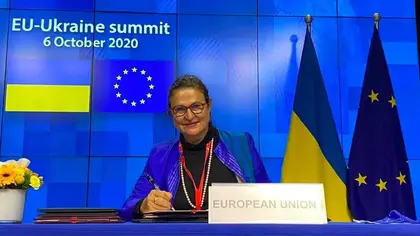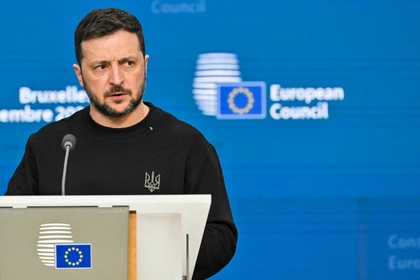The European Union (EU) is reportedly set to appoint Katarina Mathernová, the current Deputy Director General for the European Commission's Enlargement Negotiations (DG NEAR), as its new ambassador to Kyiv, EURACTIV reported after having seen an internal note on appointments by the EU's diplomatic service (EEAS).
JOIN US ON TELEGRAM
Follow our coverage of the war on the @Kyivpost_official.
Mathernová has been actively involved in advancing the EU's neighborhood and enlargement policies and has maintained close contact with Ukrainian authorities. As such she is expected to play a key role in supporting Ukraine’s efforts to join the bloc, while facing Russia's ongoing full-scale invasion.
The EU is set to release its assessment of Ukraine's progress later this year. This will be by an oral presentation of the EU executive's seven reform recommendations, anticipated in spring, followed by a formal enlargement package in autumn. Positive progress in these reports could potentially lead to discussions on opening accession talks with Ukraine by the end of the year, in line with Ukraine’s request.
The European Commission has recently transformed its internal Support Group for Ukraine into a new directorate focused on the country's reconstruction and accession. The directorate will be part of the EU executive's DG NEAR, responsible for enlargement and relations with the bloc's near neighborhood.

Orban Plans to Block EU Sanctions on Russia Ahead of Trump Inauguration
EU officials and diplomats view Mathernová's appointment as a crucial step in advancing European interests in Ukraine and providing the technical support and expertise needed for Kyiv to make progress on accession.
The current EU Ambassador to Kyiv, Estonian diplomat Matti Maasikas, has been in office since 2019. Mathernová's appointment follows the standard practice of rotating EU diplomatic postings worldwide, with new appointees typically assuming office in September of the same year.
You can also highlight the text and press Ctrl + Enter






